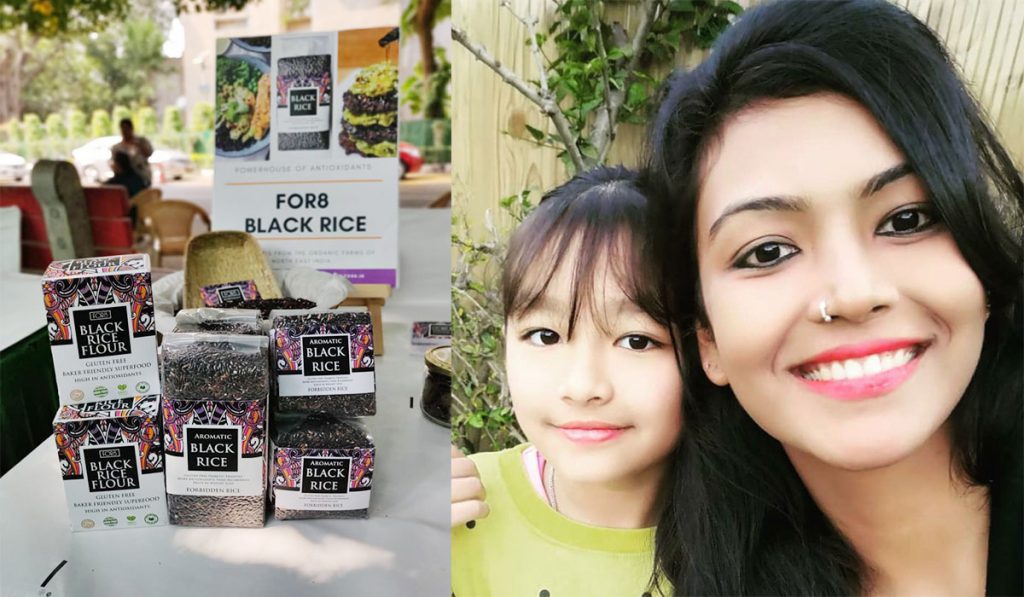
Mudita Akoijam’s business model rides the sustainable, vegan and gluten-free “super food” wave. Akoijam grew up in Delhi, and completed her graduation in Jesus and Mary College in Delhi before heading to the University of Exeter in the UK for her post-graduation. Trained for the world of finance, Akoijam’s heart was still set on her paternal home in Manipur - it was where she spent her childhood summers taking in the rich biodiversity and simplicity of the region. The longing to reconnect with these memories of her childhood is the main force she credits for unveiling to her what would become her company’s most genius product - Black Rice.
Over the years, health food trends have made a comeback everywhere. Perhaps, this prompted the revival of demand for healthier food alternatives— especially in a notoriously white rice-consuming country like India.
At the same time, Akoijam had left her job in finance to dedicate herself to locating the secret elixir in simple Manipuri meals that has allowed many indigenous people (including her great grandmother) to live upto an impressive 100 years. The magic ingredient, she found, was in the black rice that her childhood self witnessed being grown all over Manipur. With anti-cancer and anti-inflammatory properties, the humble grain is now being recognised as our very own home-grown “super food”.
She founded FOR8 to promote the benefits of black rice in one’s diet and lifestyle, but the young entrepreneur also has other things in mind — a big part of FOR8 is to uplift indigenous farmers and women of Manipur in the agricultural sector.
The company has now expanded to a selection of other products other than packaged black rice: black rice flour, Himalayan red rice and the most innovative one yet — shampoo and liquid castile soap made from black rice. These are now available in stores across New Delhi, Mumbai and Imphal; on their website, and also Nature’s Basket and Amazon.
Mudita Akoijam tells The NEStories why she believes in the power of black rice and much more
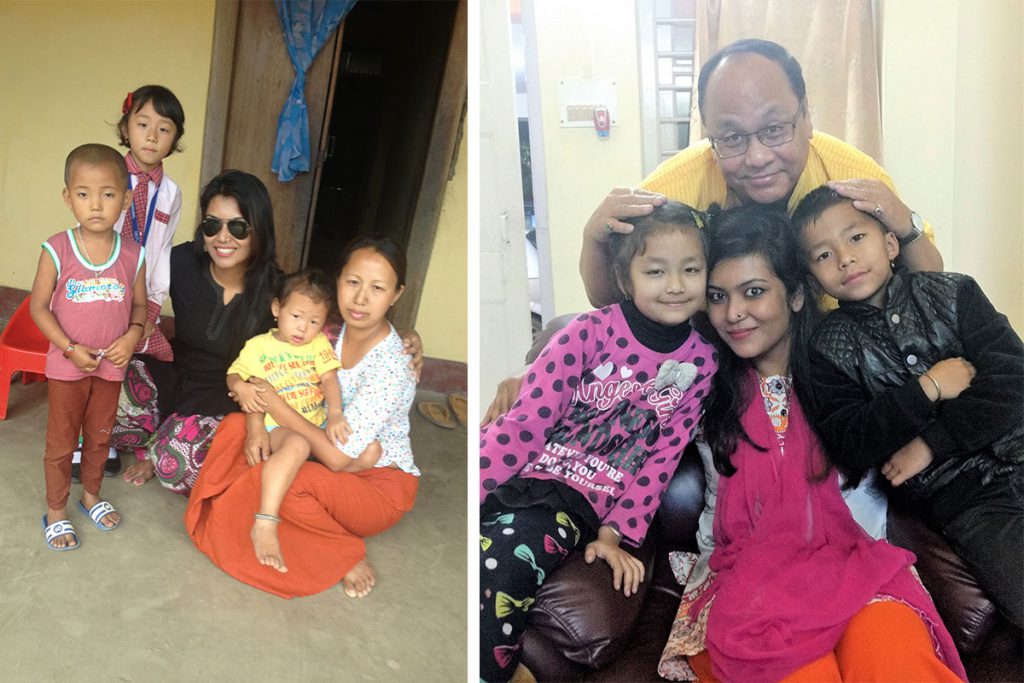
Filling the gap
With her company, Akoijam aims to “Empower the Northeast”, a place she sees has great potential. ‘There is so much” she says repeatedly about the region, pointing to its crops, its produce, craft and the ingenuity of the people that live in it. “I am astounded by the biodiversity, the initiatives of the people, the richness in this region of the country,” she says.
Akoijam talks about how in the Indian market, she sees expensive foreign fruit, products from Europe, herbs from the United States, even though everything is available and of better quality within the national borders. “It is an aspirational thing, but also it doesn’t make sense. Why would you bring crops that are grown in Africa, sold in the United States, and back here to India?!” she says. “This is a huge gap I see in the Indian market, which I want to bridge, I see people buy Western products without even thinking. I want to change that”.
Before Akoijam started FOR8, she had already worked on ground in the Northeast and done some research and remained in awe of the biodiversity of the region. “I was working in Finance, as an executive, but I quit my job and started this, my heart was always in building an ethical supply chain in the Northeast and providing economic emancipation for women.” Today, the company’s main focus is growing black rice in Manipur, but it aims to expand.
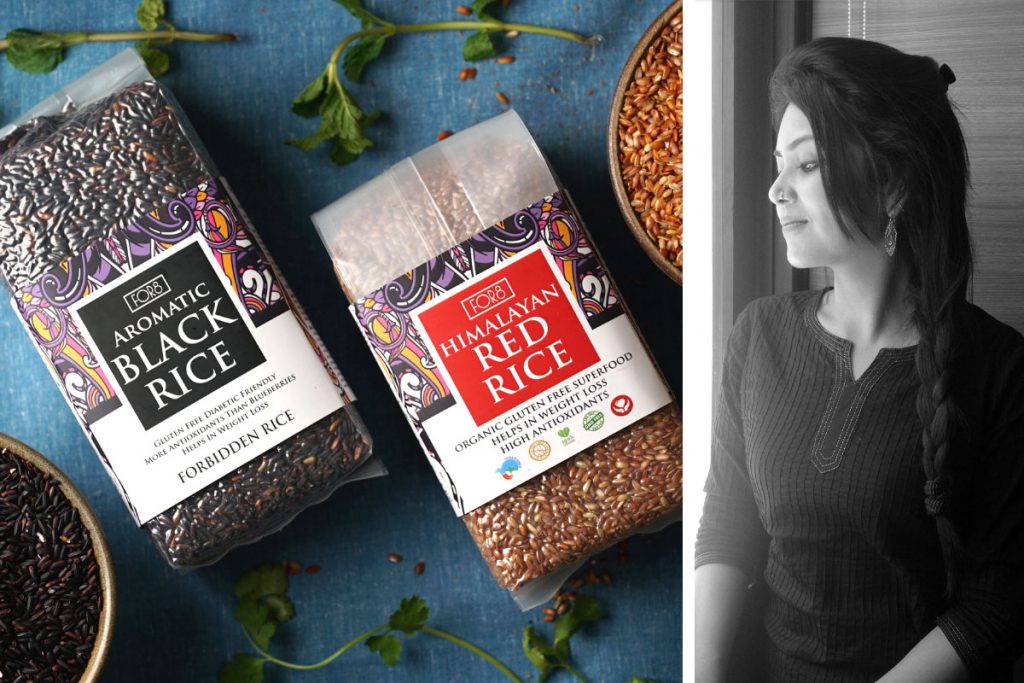
Northeast Magic Rice
Aptly dubbed as “Magic Rice”, Akoijam’s main product, Black rice has many beneficial properties — it is high in antioxidants, it is healthy, and unrefined, and also versatile – can be made into puddings, eaten with curries, and even used in foreign dishes like sushi, rice bowls, its flour can be used to make all kinds of bread (black rice flour is gluten free).
But long before it, and other foods like it, like fermented foods, was a trend; people in the Northeast have been using them. In Manipur, black rice is a treat, but also used to make shampoos and cleansers– this hints at Akoijam's latest venture i.e. her lifestyle products made from black rice espouses. The fermented, all organic product range consists of shampoo, soap, cleanser and serums. “Each has no chemicals, and is made with its base in the rice, which has so many properties – one crop can be used in many ways,” says Akoijam.
She expresses remorse in how the market doesn’t see the properties of the things we have at hand, instead focusing on arbitrary, aspirational goods from the West. “The black pigment, that has anthocyanin, which is healing, can reduce your blood sugar as well,” says Akoijam. “People in the Northeast are aware of the health properties of such things, you see, even today with Covid-19, these kinds of things matter, immunity and health matters,” she adds.
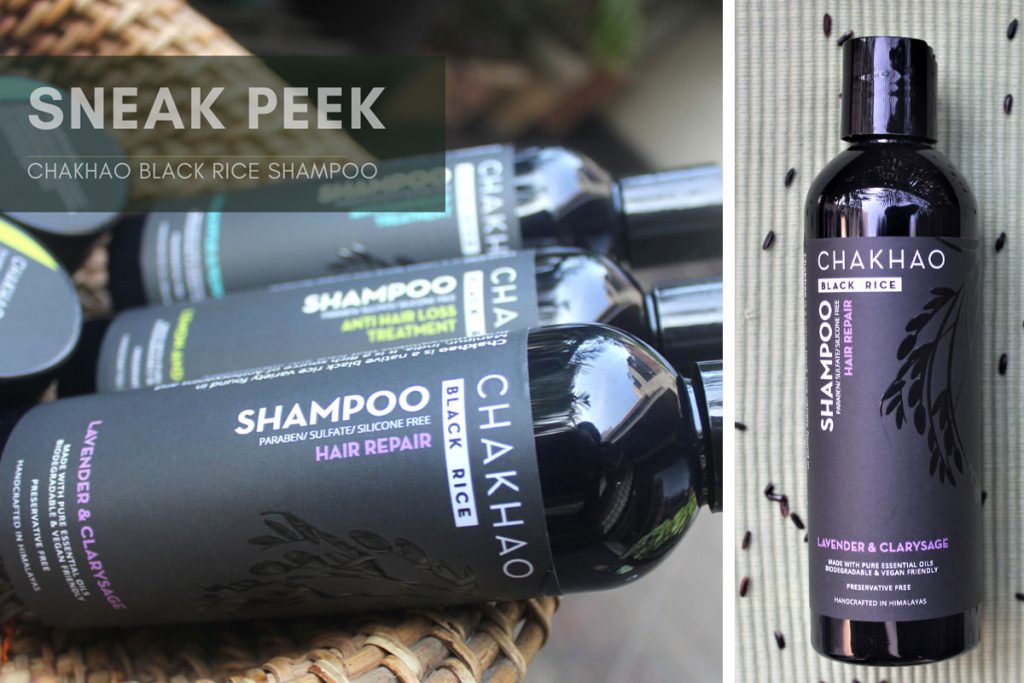
Each grain tipping the scales of change
Akoijam’s focus is creating a supply chain between her farmers and the market, she considers herself only a messenger. “I know this product and want it to get its due, all indigenous produce and seeds and culture are threatened because people are not willing to open their eyes to the treasures we have at hand here” she says. “It is an effort at awareness – it is not selling something but also making people aware of what is good for them, unlike terms like Ayurveda, which already have a following in India and abroad – my challenge lies in convincing people of the qualities of black rice,” she adds. Akoijam explains how she had to explain to chefs, really go around with her product, because these things were so new, nobody was readily eager to consume. But things are changing. “At least people are opening their eyes, and through the Internet – they can verify how good black rice is for so many things,” she said. This is something Manipuris and people of the Northeastern tribes have known for a long time – but now people are willing to listen.
Embracing the darker sides of rice
Till now, apart from black rice and its products, FOR8 has worked with bamboo shoots, chillies and other things, but this venture is not without challenges, Akoijam says. “The yield per acre is quite less, as compared to normal rice. It is very labour-intensive, the set up is a difficult one to maintain, and so, if we have to be completely organic and respect the product we need to make sure this supply chain is transparent, our customers should be ready to pay for the product,” she says. “We are an expensive brand, - but hardly! If you look at how much people are ready to pay for anything ‘foreign’! I mean, I have seen people shell out thousands of rupees for biscuits from Europe, but this is a product that will benefit you, and farmers – but still many people may hesitate,” she adds.
Additionally, the lack of accessibility that Manipur has to the mainland (there is no rail network) can make shipping expensive, and often difficult, like during the Covid-19 pandemic right now. “I would love to deal in fresh, but how?” says Akoijam. “There was a time we flew down pineapples from Manipur, and they disappeared. But of course that is not economical, or environmentally an option for us,” she adds.
The challenges to be a young entrepreneur from the Northeast are many, which used to be rattled by civil unrest recently, and even today, can be subject to border skirmishes, state neglect and has an undeveloped infrastructure for young people is not an easy place to start a business. “In the beginning, people would fear getting stopped by insurgents on their way to transport,” she says. “It is still difficult, sometimes to convince people to transport through the roads.”
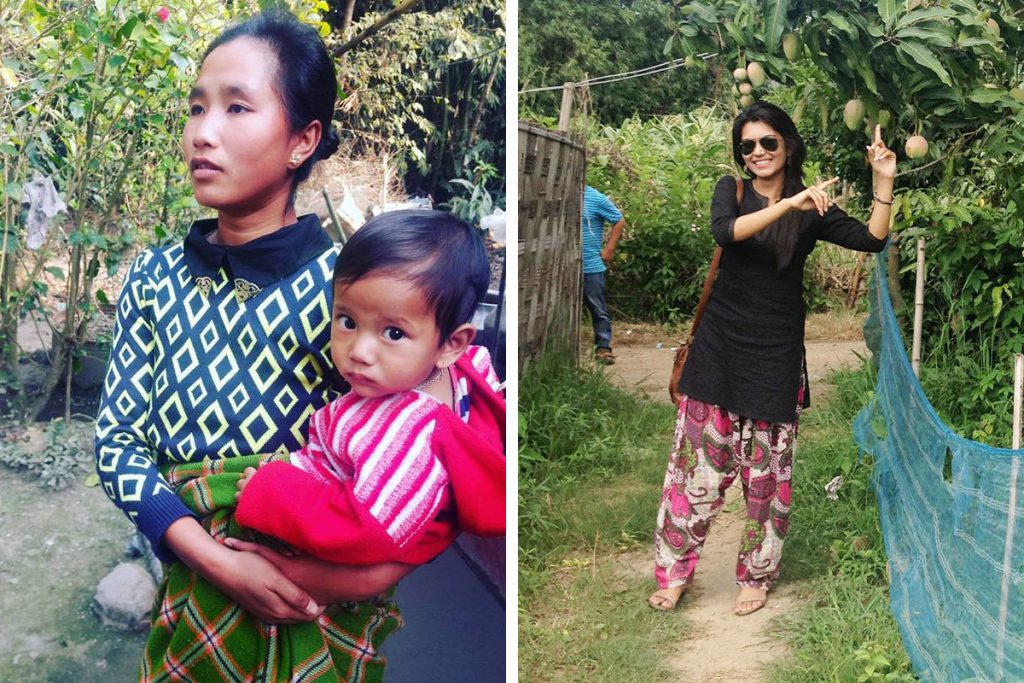
“Businesses can’t succeed if they are merely for profit, your heart has to be in it, and it should also benefit someone else…”
Even in the face of challenges, like Akoijam, many see the potential of their hometowns. In Manipur itself, there is Forage – that makes kombucha and hot sauce, Hill Wild – which makes chocolates. The young people of the Northeast are ready to do what it takes to preserve their heritage and also alert others about it. Akoijam has many visions for FOR8, and is confident that her products for hair and skin will soon reach the market she desires. Her days start at 8 am and go on till night. “In start-ups, there are no timings, no weekends,'' she laughs. But she doesn’t mind, “I love the women I work with, and besides, their days start at 5 am, mine pale in comparison!” she says. In the end, it is about creating a market for them. It is really all about them.”
Akoijam is sure that her farmers and their grit will reach the international market. For young entrepreneurs like herself – Akoijam says to believe in their product, to not give up easily and not be scared to ask for help. She hopes that many will take up small businesses in the Northeast, promote the region and preserve its diverse and incomparable heritage. “I’m still learning myself, but I think what keeps me going is how this connects me to my home. It has to be a good match, and for me, my heart lies in Manipur,” she says. “Businesses can’t succeed if they are merely for profit, your heart has to be in it, and also benefit someone else. Ventures that are for monetary profits are forgettable ones, sure you might get rich, but does that matter in the end?” she adds. “At FOR8, I want to crease something that lasts — a system for the women farmers, and for the customers that buy our products. Once they see one another, my job is done! I just have to keep that connection running.”

